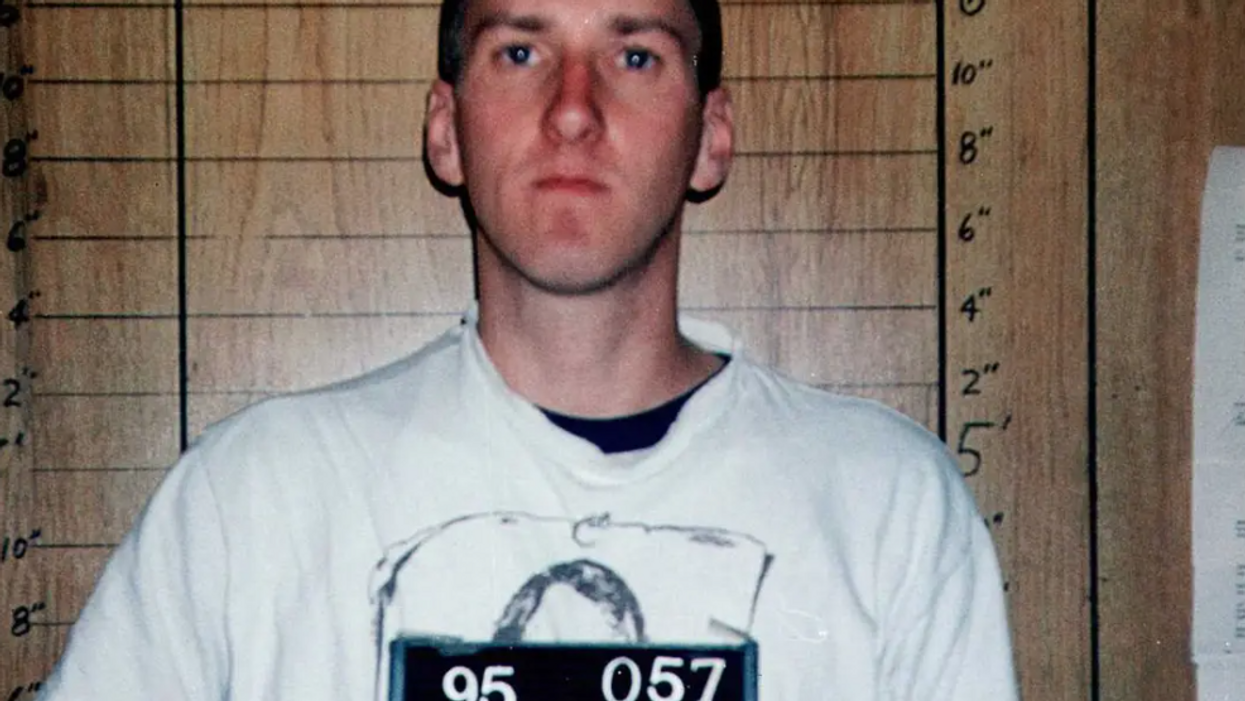Tracing America's Political Poisoning Back To Timothy McVeigh
You’d like to think that in the wake of the farcical and failed January 6, 2021, uprising to reverse the results of the 2020 presidential election, even the Republican Party had sobered up and right-wing conspiracy theories were fading from prominence in the United States.
Ain’t happening.
But then you’d also like to think that the malign influence of Fox News would have receded since the network agreed to pay more than three-quarters of a billion dollars to Dominion Voting Systems after numerous talking heads and ranking executives admitted under oath that they knowingly broadcast thunderous lies about the “stolen” 2020 election.
Also not happening. Despite some slippage of media outlets even further out on the fringe and the purging of “white replacement” conspiracy maven Tucker Carlson, Fox News remains highly profitable and influential. A substantial proportion of Americans, it appears, simply want to be lied to if it flatters their incipient paranoia.
You’d imagine, as well, that a former president who publicized the private address of another former president, enabling and encouraging an armed crackpot to stalk his neighborhood with lethal intent, would find himself shunned and essentially disqualified from seeking public office by members of his own party, who preach law and order.
After all, what would happen to any other criminal defendant who broadcast naked threats against prosecutors and their families?
Yet, with the signal exception of former New Jersey Gov. Chris Christie, who hasn’t the proverbial snowball’s chance, Teflon Donald Trump’s GOP rivals remain discreetly mute.
Instead, Trump appears to have a substantial lead for the GOP nomination. “NOW THAT THE ‘SEAL’ IS BROKEN ...,” began one all-caps outburst on his Truth Social account recently — a pointed allusion to the Book of Revelation (although it’s unlikely Trump’s ever read it). He ended up vowing retribution against Democrats he accuses of maliciously destroying the country.
It’s more like a professional wrestling spectacle than an American election campaign. Even the Mini Mussolini currently running second in polls promises to purge the nation of heretics. He uses the word “die” a lot.
So, have a substantial proportion of Republicans simply gone around the bend and abandoned reason altogether? Alas, many have, yes. And whether they acknowledge it or not, their movement’s patron saint is Timothy McVeigh, the Oklahoma City bomber.
I come by this opinion after reading Jeffrey Toobin’s extraordinary new book, Homegrown: Timothy McVeigh and the Rise of Right-Wing Extremism. A terrific reporter with legal expertise and a knack for vivid storytelling, Toobin has written several excellent books about criminal trials — including a bestseller about the O.J. Simpson case.
Toobin originally covered McVeigh’s trial for murdering 168 people (including 19 children) with a truck bomb that destroyed the Alfred P. Murrah Federal Building on April 19, 1995, for The New Yorker. He describes having a flashback in 2020 while reading about the militia loons who plotted to kidnap Michigan Gov. Gretchen Whitmer and try her for treason in a kangaroo court.
“I know these people,” he said to himself, recognizing that the self-styled patriots’ motives were essentially identical to McVeigh’s a quarter-century earlier. Indeed, much of McVeigh’s deadly plot was conceived on a remote Michigan farm belonging to co-conspirator Terry Nichols’ family.
In one sense, McVeigh was a classic American loner, a juco dropout who failed in an attempt to become a Green Beret and left the Army without a profession or a purpose. It was, Toobin writes, “a shattering defeat ... he had no plan B.”
Much of Homegrown reads like a Jack Kerouac novel about a demented loner driving aimlessly through the American outback in search of somebody to kill: from his native upstate New York to Arkansas to the Michigan north woods to Arizona and the Flint Hills of Kansas. Basically, from one gun show to another.
And as he drove, he listened to Rush Limbaugh touting the political nostrums of the fellow he called “Mr. Newt.” When Gingrich urged Republicans to describe Democrats as “sick,” “pathetic,” “traitors,” “radical” and “corrupt,” McVeigh heard him. When Limbaugh talked about a “second violent American revolution,” he thought that sounded like a great idea.
But what really caught McVeigh’s attention was a prophetic potboiler called The Turner Diaries, a novel describing an uprising against a tyrannical government of Blacks and Jews who were taking away patriots’ guns. McVeigh was all about guns. He built his bomb based on the novel’s detailed instructions.
McVeigh never expressed an ounce of regret; he died defiant, a hero to himself. And thanks to the Internet, as Toobin makes clear, the sick, racially obsessed gun nuts like him are no longer alone. And then, after Trump became president, Toobin writes, “the wolf pack had a new leader.”
Reprinted with permission from Suntimes.











